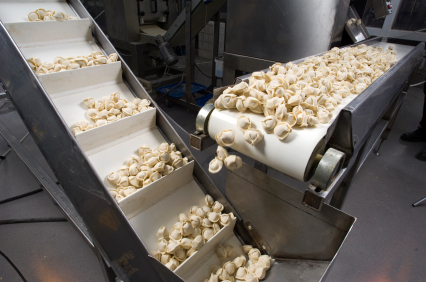Equipment speed, accuracy and operator safety are all very important concerns in the food processing industry. Millions of dollars go into product testing, research and development in order to make the machines faster, better and safer. However, one extremely important component is often overlooked – the lubricant.
Not just any lubricants can cut it in the food processing industry. They must oil the machines and keep things running. These lubricants are also charged with another duty that their nonfood counterparts do not have, food processing lubricants must protect the food that they come in contact with, without altering the taste, chemical or microbial makeup. Food grade lubricants are necessary for keeping the machine going, and are key to keeping the food safe as well. Unfortunately, these substances are often overlooked.
4 Important Facts About Food Grade Lubricants
- There’s more than one type of lubricant. The US Department of Agriculture (USDA) has three categories in which approved food grade lubricants are placed.
- H1 is for lubricants that can safely come in contact with food.
- H2 category lubricants are those that cannot have any contact with food.
- H3 lubricants are oils used to prevent rust on components that contact food.
- There are environmentally friendly options. Plants can borrow eco-friendly lubricants from some nonfood counterparts for H2 category oils. H1 and H3 category lubricants are more limited. Only mineral oils or synthetics are used. Of the two, ester based synthetic lubricants are the more environmentally sound option. They perform well and are biodegradable.
- Ignoring lubricants can be devastating for your business. According to the trade publication, Machinery Lubrication, there have been several documented cases of contamination from the use of the wrong lubricant.
- A 1998 case of the use of a nonfood grade gear lubricant resulted in the recall of 490,000 pounds of ham by Smithfield Foods. Consumers reported burning throats and foul tastes.
- Another case of wrong lubricant usage in 2000 led to the recall of 86,000 pounds of deli meat. Eaters complained of a bad odor and taste along with intestinal issues.
- Myths abound within the industry. From workers to plant managers and owners, all need to be properly educated about the lubricants used in the plant. Otherwise, you get misconceptions that lead to safety issues. For example, an employee who believes that all lubricants in the plant are food grade can potentially grab the wrong lubricant and contaminate thousands of pounds of food. Another myth is that synthetic food grade lubricants are inferior. In truth, they are designed to perform as well as or better than other lubricants. There is an advantage in using synthetics that are ester based, because these are biodegradable.
The stuff that greases the gears in the food processing plant thus have a larger impact on the company than most people are willing to believe. This underestimation can be hazardous and expensive, especially if the misinformation is plant wide.


